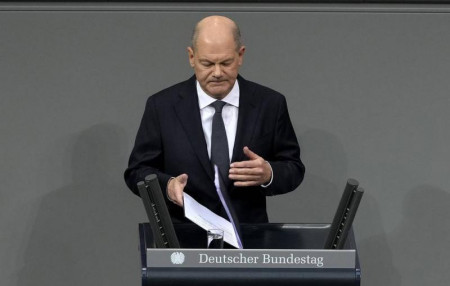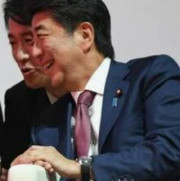
After German Chancellor Olaf Scholz (SPD) fired his finance minister Christian Lindner (FDP), and the Free Democrats left the ruling coalition in response, the latter now only comprises two parties instead of three – the Social Democrats and the Greens. Thus, the Chancellor turned not just into a "lame duck", but into a "lame duck with a broken wing", becoming head of a "minority government". This refers to a Cabinet hardly able to effectively run the country without a Bundestag majority, all the more so amid both the domestic economic crisis and an extremely difficult global geopolitical situation. And all of the aforementioned is largely brought about by the change of power overseas – the bleak prospect for the German elites of the imminent coming to power of US President-elect Donald Trump.
In this context, despite the awfully low personal and party ratings, Olaf Scholz, having declared his "firm decision" to fight for the post again, agreed to raise the "issue of confidence" in his government. Scholz's intentions were absolutely transparent: he hoped that the parliamentary vote would result in that of no confidence to allow President Frank-Walter Steinmeier dissolve the Bundestag and call an early election. Moreover, shortly after the tripartite ruling coalition collapsed, the Social Democratic national leader endorsed this kind of scenario altogether. "Our country needs a stable [parliamentary] majority and a government that is capable of acting. This is my criterion," the president said at the time.
By the way, Scholz’s key opponent, leader of the CDU/CSU faction and CDU chairman Friedrich Merz has been interested in the parliament's refusal to trust the sitting government no less but even more than the Chancellor himself. It is him who has the most realistic chances to become the new Cabinet chief following the Bundestag election set to take place on February 23. As a result, of the 717 votes tallied, 207 gave Scholz their confidence, 394 did not and 116 abstained, as announced by parliament chairman Bärbel Bas. Thus, the "vote of no confidence" is deemed to be effected, paving the way to an early election.
That day, as per established schedule, the roll-call parliamentary vote was preceded by a speech by Chancellor Scholz, followed by his current and former ruling coalition partners, and then opposition leaders. All the performances were distinguished by "a high degree of populism, with reproaches and claims sounding all around, so one may safely assume that the entire election campaign is going to be just as fierce and dirty," local observers claim. For example, Berliner Zeitung wrote that "there was not a tincture of introspection in the Chancellor's farewell speech, let alone self-criticism. Instead of talking about the lessons he learned from the government coalition’s collapse, or references to mistakes and omissions, it was all about pre-election puffery. And this is at a time when the country is undergoing deindustrialization, and its economy is in free fall."
In his speech, Scholz, who had been heading the government for three years, blamed all the failures on his former coalition partners and now rivals in the election race. Thus, he accused the "Free Democrats" led by former Finance Minister Lindner of "insufficient moral maturity" to work in the government. At the same time, he demanded to attract investors to key sectors of German industry and do it "right now, not someday," quoting the United States and China as examples. Apart from that, Scholz pointed to the need of arming the Bundeswehr and maintaining the status of Ukraine's major sponsor in Europe "in its fight against Russian aggression." At the same time, he once again reiterated his stand against providing the Ukrainian army with long-range Taurus cruise missiles.
Meanwhile, Stolz faced sharp criticism from both his former partners and the opposition. For example, BSW party chairman Sarah Wagenknecht, who has consistently condemned Germany’s military supplies to Kiev, said that the latest vote of confidence, sixth in the entire history of the German government, should be seen as special, "because the level of trust in the chancellor has never been as low as it is today." She stressed that Scholz’s government had been long indifferent to "the growing number of bankruptcies, which led to mass layoffs and a dramatic crisis in the German economy."
Along with the criticism of Scholz’s government by the Alternative for Germany party, its co-chairman Tino Chrupalla praised his "restraint towards Ukraine." "If Friedrich Merz had been in the chancellor's place, Germany would have been even more involved in the war," the politician pointed out. His co-chair Alice Weidel stressed that it was "green" economy Minister Robert Habeck who destroyed the German economy, along with Scholz. Habeck, in turn, lambasted Cabinet leader hopeful Friedrich Merz, the CDU chairman, accusing him that "100 billion euros are not enough to pay for all the promises of the CDU outlined in its election program."
In turn, Friedrich Merz took shots at the Scholz government’s domestic and foreign policy, stressing that the current Chancellor looks ridiculous internationally as he either sits silently on the sidelines, or starts preaching at everyone else. Also, Merz once again called for providing Ukraine with any feasible support, though with a reservation that "the war must end as soon as possible." This time, he refrained from traditional ultimatums towards the Kremlin, and piqued Olaf Scholz at the end of his speech: "Herr Federal Chancellor, you had your chance, but you did not use it." And to loud applause from his faction, he added: "You do not deserve to be trusted, Herr Scholz."









